108 Basic Chinese Words: Essential Chinese Vocab for Beginners
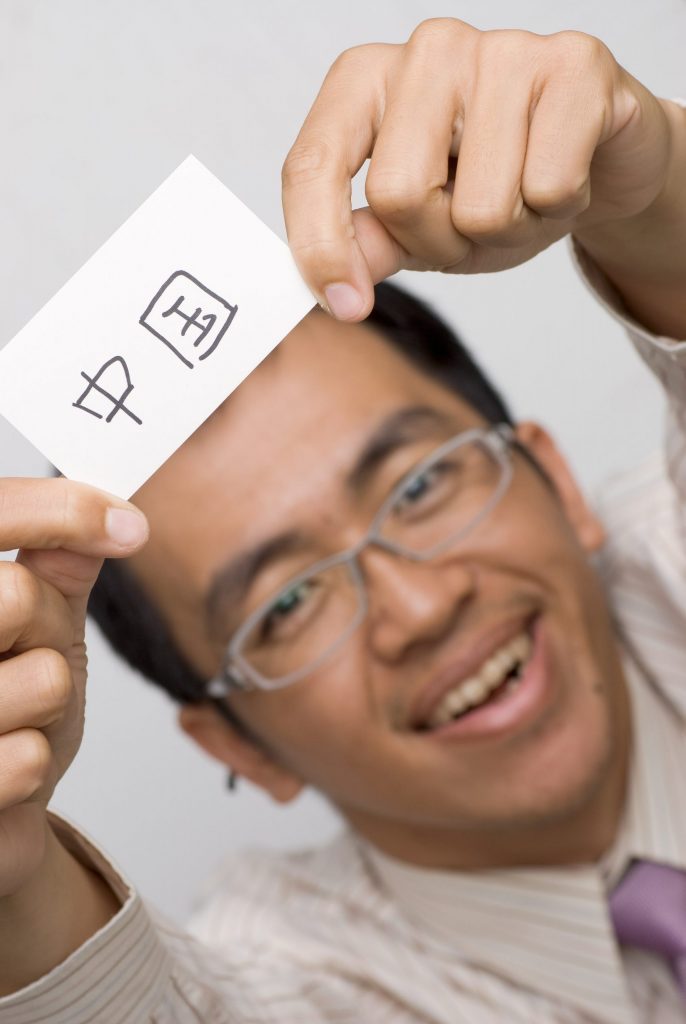
Learning some basic Chinese words is a great way to get started with the language. After all, you can’t have much of a conversation in Chinese unless you can say beginner Chinese words like these:
- 你好 (nǐ hǎo) – “hello”
- 你好吗? (nǐ hǎo ma?) – “How are you?”
- 是 (shì) – “yes”
- 没有 (méiyǒu) or 不 (bù) – “no” 谢谢 (xièxiè) – “thank you”
I usually recommend that language learners start with the words most relevant to them. That said, these are extremely common Chinese words and are relevant to most Chinese learners.
Here’s what we’ll be covering, so you have an idea of what’s ahead:
- The 16 Most Common Chinese Greetings
- 43 Useful Chinese Words and Phrases for Beginners
- 35 Simple Chinese Words to Get You Around When Visiting China
- The 14 Chinese Words to Know to Blend in with Chinese Culture
Now, are you ready to learn what will be your stepping stone in mastering Chinese?
Read on:
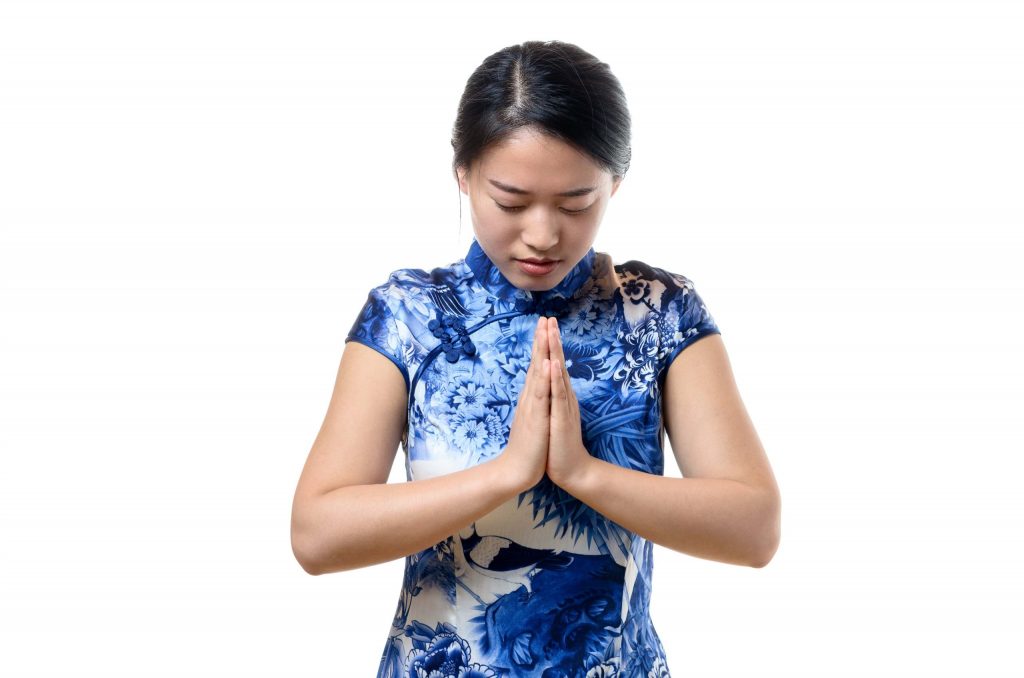
The 16 Most Common Chinese Greetings
The first things you need to master in every language are greetings. These are the basic Mandarin Chinese words and phrases to greet someone with:
- 你好 (nǐ hǎo) – “Hello”
- 您好 (nín hǎo) – “Hello” (polite)
- 好久不见 (hǎojiǔ bùjiàn) – “Long time no see”
- 你好吗? (nǐ hǎo ma?) – “How are you?”
- 欢迎 (huānyíng) – “Welcome”
- 早上好 (zǎoshang hǎo) – “Good morning”
- 早! (zǎo!) – “Morning!”
- 下午好 (xiàwǔ hǎo) – “Good afternoon”
- 晚上好 (wǎnshàng hǎo) – “Good evening”
- 晚安 (wǎn'ān) – “Good night”
- 再见 (zàijiàn) – “Goodbye”
- 拜拜 (bàibài) – “Bye bye”
- 回头见 (huítóu jiàn) – “See you later”
- 慢走 (màn zǒu) – “Take care”, literally “walk slowly”
- 祝你今天愉快 (zhù nǐ jīntiān yúkuài) – “Have a nice day”
- 旅途平安! (lǚtú píng'ān!) – “Have a safe trip!”
43 Useful Chinese Words and Phrases for Beginners
These phrases are really useful for speaking Chinese, especially if you’re visiting China. They’re exactly what you need to know so you can get through your first conversation or while out shopping.
- 我不明白. (wǒ bù míngbái) – “I don’t understand”
- 你明白不明白? (nǐ míngbái bu míngbái?) – “Do you understand?”
- 你会说英语吗?(nǐ huì shuō yīngyǔ ma?) – “Do you speak English?”
- 我只会说一点中文. (wǒ zhǐ huì shuō yīdiǎn zhōngwén) – “I speak Chinese only a little bit”
- 请说慢一点. (qǐng shuō màn yīdiǎn) – “Please, speak more slowly”
- 你可以再说一遍吗? (nǐ kěyǐ zàishuō yībiàn ma?) – “Can you repeat that?
- 这是多少钱? (zhè shì duōshǎo qián?) – “How much is this?”
- 太贵了 (tài guìle) – “It’s too expensive”
- 便宜一点吗?(nǐ néng piányí yīdiǎn ma?) – “Can you make it a bit cheaper?”
- 好吧 (hǎo ba) – “Okay, then”
- 这是什么? (zhè shì shénme?) – “What is this?”
- 你是哪国人?(nǐ shì nǎ guórén?) – “Where are you from?”
- 我是……人。(wǒ shì……rén) – “I’m from…”
- 中文…怎么说? (zhōngwén…zěnme shuō?) – “How do you say… (in Chinese)?”
- 认识你我很高兴 (rèn shi nǐ wǒ hěn gāo xìng) – “Nice to meet you”
- 你什么意思?(nǐ shénme yìsi?) – “What do you mean?”
- 我是… (wǒ shì…) – “I am…”
- 你的名字是什么?(nǐ de míngzì shì shénme?) – “What’s your name?”
- 我的名字是… (wǒ de míngzì shì…) – “My name is…”
- 这是什么意思?(zhè shì shénme yìsi?) – “What does this mean?”
- 生日快乐! (shēngrì kuàilè!) – “Happy birthday!”
- 我爱你 (wǒ ài nǐ) – “I love you”
- 我想你 (wǒ xiǎng nǐ) – “I miss you”
- …在哪?(…zài nǎ?) – “Where is…?”
- 你还好吗? (nǐ hái hǎo ma?) – “Are you alright?”
- 发生什么事了?(fāshēng shénme shìle?) – “What happened?”
- 是 (shì) – “Yes”
- 没有 (méiyǒu) or 不 (bù) – “No”
- 也许 (yěxǔ) – “Maybe”
- 我不知道 (wǒ bù zhīdào) – “I don’t know”
- 再次 (zàicì) – “Again”, “once again”
- 谁 (shéi) – “Who”
- 什么 (shénme) – “What”
- 怎么 (zěnme) – “How”
- 什么时候 (shénme shíhòu) – “What time”
- 何时 (hé shí) – “When”
- 哪里 (nǎlǐ) – “Where”
- 为什么 (wèishénme) – “Why”
- 非常 (fēicháng) – “Very”
- 哇!(wa!) – “Wow!” 真 (zhēn*) – “Really”, “truly”
- 春节 (chūnjié) – “Chinese New Year”
- 恭喜 (gōngxǐ) – “Congratulations”
35 Simple Chinese Words to Get You Around When Visiting China
Without a doubt, understanding simple Chinese writings and signs is invaluable while in China. Being able to ask where is what (like the bathroom!) and read the sign on the door is something that you hardly do without the knowledge of basic Chinese words.
I prepared a handy list of easy Chinese words to get you around:
- 厕所 (cèsuǒ) – “Toilet”
- 浴室 (yùshì) – “Bathroom”, “shower room”
- 入口 (rùkǒu) – “Entrance”
- 出口 (chūkǒu) – “Exit”
- 火车站 (huǒchē zhàn) – “Train station”
- 公车站 (gōngchē zhàn) – “Bus station”, “bus stop”
- 飞机场 (fēijīchǎng) – “Airport”
- 出租车 (chūzūchē) – “Taxi”
- 车票 (chēpiào) – “Ticket (for transportation”
- 火 (huǒ) – “Fire”
- 救命!(*jiùmìng!) – “Help!”
- 紧急出口 (jǐnjí chūkǒu) – “Emergency exit”
- 逃生通道 (táoshēng tōngdào) – “Fire exit”, literally “escape route”
- 警察 (jǐngchá) – “Police” (The number for the police in China is 110)
- 报警 (bàojǐng) – “Call the police”
- 医院 (yīyuàn) — “Hospital”
- 救护车 (jiùhù chē) – “Ambulance” (The number to call an ambulance in China is 120)
- 消防局 (xiāofáng jú) – “Fire station” (The number for firefighters in China is 119)
- 急救室 (jíjiù shì) – “Emergency room”
- 药店 (yàodiàn) – “Pharmacy”
- 医生 (yīshēng) – “Doctor”
- 牙医 (yáyī) – “Dentist”
- 杂货店 (záhuò diàn) – “Grocery store”
- 市场 (shìchǎng) – “Market”
- 超级市场 (chāojí shìchǎng) – “Supermarket”
- 购物中心 (gòuwù zhòng xīn) – “Shopping center”
- 餐馆 (cānguǎn) – “Restaurant”
- 麦当劳 (màidāngláo) – “McDonald’s”
- 咖啡店 (kāfēi diàn) – “Cafe”
- 今天 (jīntiān) – “Today”
- 昨天 (zuótiān) – “Yesterday”
- 明天 (míngtiān) – “Tomorrow”
- 好 (hǎo) – “Good”
- 坏 (huài) or 不好 (bù hǎo) – “Bad”
- 可口 (kěkǒu) or 好吃 (hǎochī) – “Tasty”
Staying Polite in Chinese – The 14 Chinese Words to Know to Blend in with Chinese Culture
I wouldn’t want to imply that other nations aren’t polite, but remember: when interacting with a Chinese person, you’ll need to be very respectful and polite at all times. For the Chinese, the concept of “losing face” – 丢脸 (diūliǎn) – is important and they have strong feelings about it. That’s why you’ll find that they’re usually well-mannered and courtesy is appreciated.
Make sure you remember these basic words and phrases to keep polite in China:
礼貌用语 (lǐmào yòngyǔ) – “Polite Language”, “Polite Phrases”
This common Chinese expression refers to phrases of courtesy. 礼貌 (lǐmào) means “polite/courtesy” or “manners”. Let’s hope you won’t hear this phrase from a Chinese friend: 你的礼貌在哪? (nǐ de lǐmào zài nǎ?) – “Where are your manners? / Have you no manners?”
谢谢 (xièxiè) – “Thank You”
Although the Chinese language contains many expressions which repeat the same character and a lot of times they can be omitted, it’s not likely you’ll see this particular word formed of just one character (谢). You’ll be safe sticking to 谢谢 (xièxiè) – “thank you”, but if you’re feeling extra grateful, feel free to say 谢谢你 (xièxiè nǐ) – “thank you” or 太谢谢你了 (tài xièxiè nǐle) – “thank you so much”.
If you need to be formal, 感谢 (gǎnxiè) is the one you’ll use. And if you can speak casually, use 谢了 (xièle) – “thanks” with your friends or someone your age.
对不起 (duìbùqǐ) – “Sorry”, “Excuse Me”
The formal way to say “sorry” or “excuse me”. It depends on the context, but more often than not, it’s used as “sorry”. For example: 对不起,占了你这么多时间. (duìbùqǐ, zhànle nǐ zhème duō shíjiān) – “Sorry for taking up so much of your time.”
请问 (qǐngwèn) – “Excuse Me”
This word is the one that you use when asking for attention and help. It wouldn’t be right to say it in a sentence like “Excuse me, can I pass through?”, but more like: 请问厕所在哪? (qǐngwèn cèsuǒ zài nǎ?) – “Excuse me, where is the toilet?”.
The literal translation of 请 (qǐng) is “please” and 问 (wèn) means “to ask”, so you’re asking for permission to ask someone a question or for help.
先生 (xiānshēng) – “Sir”
Same way as you would use “sir” in English, 先生 (xiānshēng) – “sir” is used in Mandarin Chinese. Add this in your sentence if you want to be polite and formal.
夫人 (fūrén) – “Madam”, “Lady”
Similarly to 先生 (xiānshēng) – “sir” above, use this word if you want to show respect to your conversational partner.
请你… (qǐng nǐ…) – “Please…, Could You…”
Like I showed you before, 请 (qǐng) means “please” and 你 (nǐ) means “you”. Again, you would ask someone to help you with something in a polite way, for example: 请你给我两张往返票 (qǐng nǐ gěi wǒ liǎng zhāng wǎngfǎn piào) – “Please, give me two roundtrip tickets. / Can I please have two roundtrip tickets?”.
别客气 (bié kèqì) or 不客气 (bù kèqì) or 不用谢 (bùyòng xiè) – “You’re Welcome”
不用谢 (bùyòng xiè) – “you’re welcome” would literally mean “no need to thank”. You’re should recognize 谢 (xiè) from 谢谢 (xièxiè) – “thank you” above.
It’s correct to say any of these phrases interchangeably, but the first two literally mean “don’t be polite / don’t be so polite”.
没关系 (méi guānxì) – “No Problem”
没 (méi) – “no / don’t” and 关系 (guānxì) – “relationship” together mean “it doesn’t matter” or “nevermind”. It’s very widely used as “no problem” or “you’re welcome”, too.
稍等 (shāo děng) – “One Moment”
It’s likely you’ll hear these two words when arriving for an appointment, speaking to a receptionist, or similar situation where you’re told to “wait a bit”.
Here’s an example: 稍等,我会让他知道你在这里. (shāo děng, wǒ huì ràng tā zhīdào nǐ zài zhèlǐ) – “Wait a moment, I’ll let him know you’re here.”
放心 (fàngxīn) – “Rest Assured”, “Don’t Worry”
Simply put, this word is used to put someone at ease; to calm them down. As always, there are different ways you can place it in your sentence, but this example is the most common use: 放心吧,我和你去. (fàngxīn ba, wǒ hé nǐ qù) – “Don't worry, I'll go with you.”
麻烦 (máfan) – “Trouble”, “Bother”
Although 麻烦 (máfan) literally means “trouble” or “bother”, and it can be used that way, it’s often found to be similar to 请 (qǐng) – “please” and as a sign of courtesy.
Look at this example sentence: 麻烦你了,你知道酒店在哪里吗? (máfan nǐle, nǐ zhīdào jiǔdiàn zài nǎlǐ ma?) – “Excuse me, do you know where the hotel is?”.
Here, 麻烦 (máfan) means “excuse me”, but also “sorry to bother you”.
打扰 (dǎrǎo) – “Disturb”, “Bother”
Similarly to 麻烦 (máfan) – “trouble” or “bother”, 打扰 (dǎrǎo) – “bother” is also a sign of courtesy.
For example: 打扰你,能不能帮我携带行李?(dǎrǎo nǐ, néng bù néng bāng wǒ xiédài xínglǐ?) – “Excuse me, could you please help me with my luggage?”.
In this sentence, 打扰你 (dǎrǎo nǐ) is “excuse me”, but literally it means “sorry to disturb/bother you”.
让一下 (ràng yīxià) – “Excuse Me (Can I Pass?)”
This final “excuse me” in Chinese is exclusively used when asking others to let you through. 让 (ràng) means “let”, “allow” or even “make way” and 一下 (yīxià)’s literal meaning is “a bit”. But in reality, it’s a bit more difficult to explain. It’s often associated with a verb of brief action, but you might need to observe how native Chinese speakers use it first to be comfortable using it yourself.
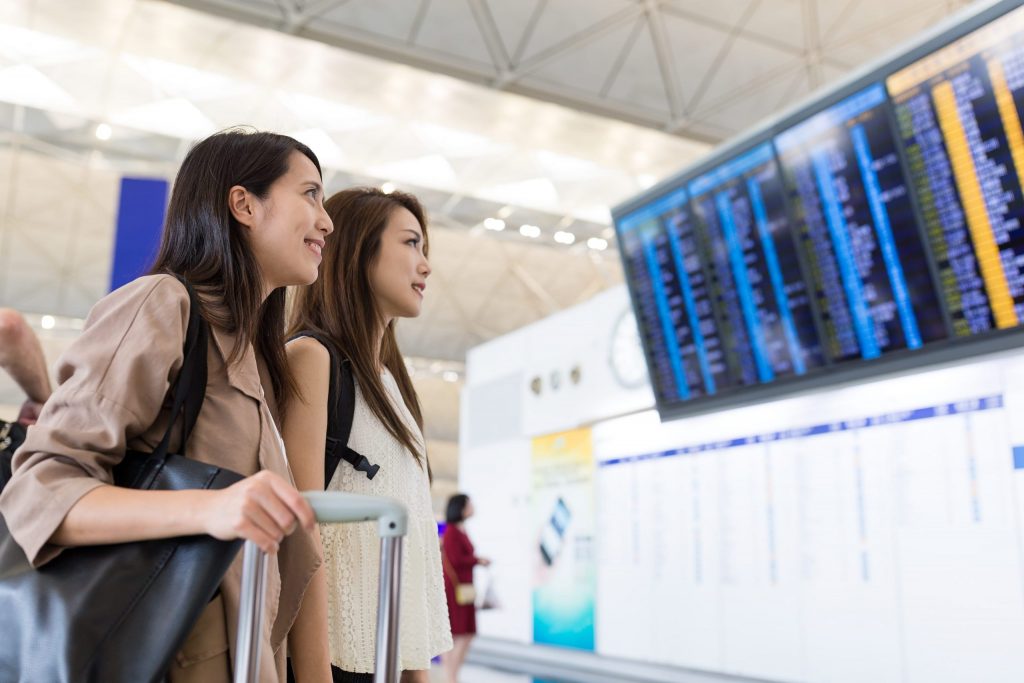
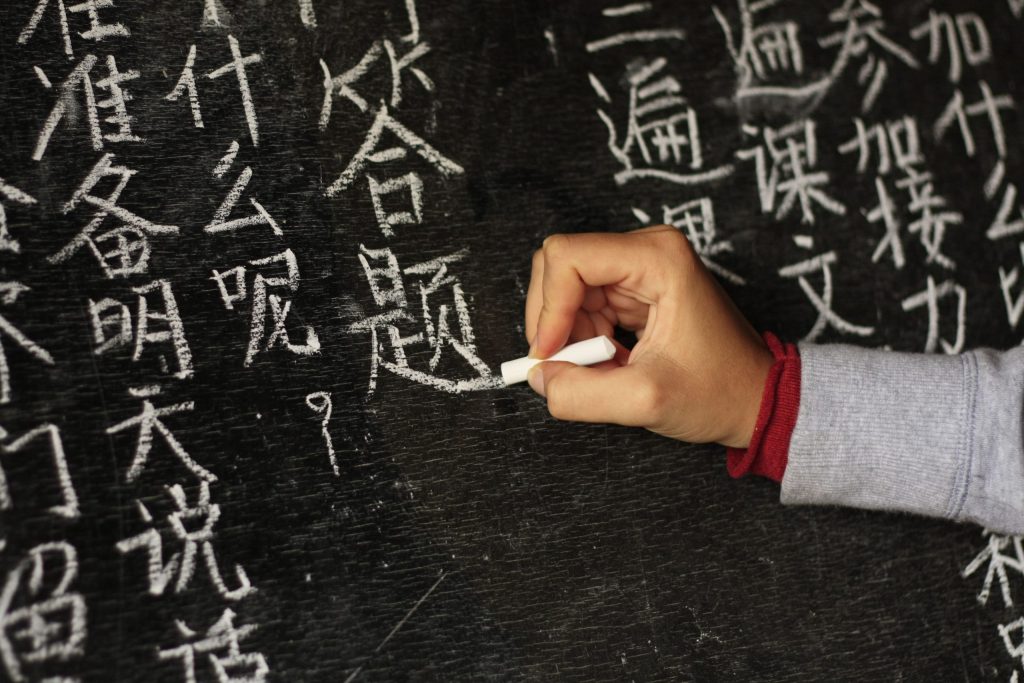
Ready for Your Next Steps in Learning Mandarin Chinese?
There is still a long way to master Chinese after reading this guide, but I can already tell you that knowing these words and phrases will start you off perfectly.
Make sure you check out this guide on how to say “hello” in Chinese.
If you’re looking for your next step to help you learn more of this beautiful language, check out this article about learning Chinese characters or this one about useful Chinese phrases.
Good luck and don’t forget to practice what you just learned.
下次见! (xià cì jiàn!) – “See you next time!”.

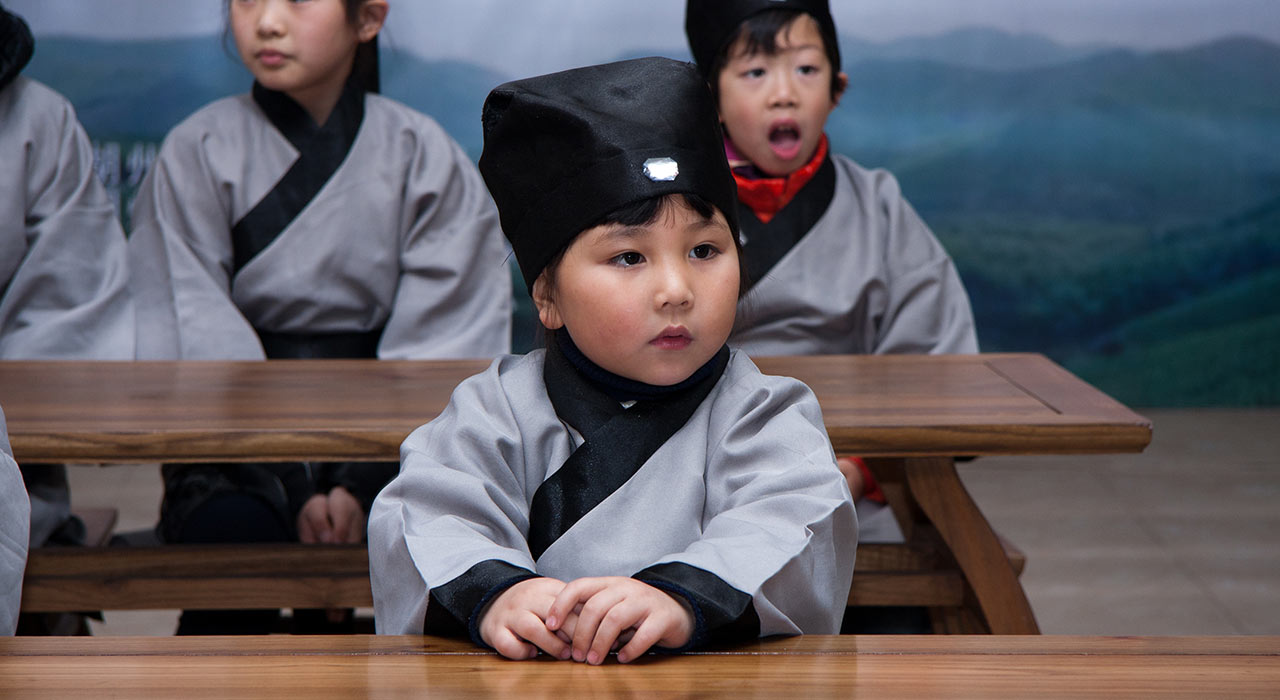

Social